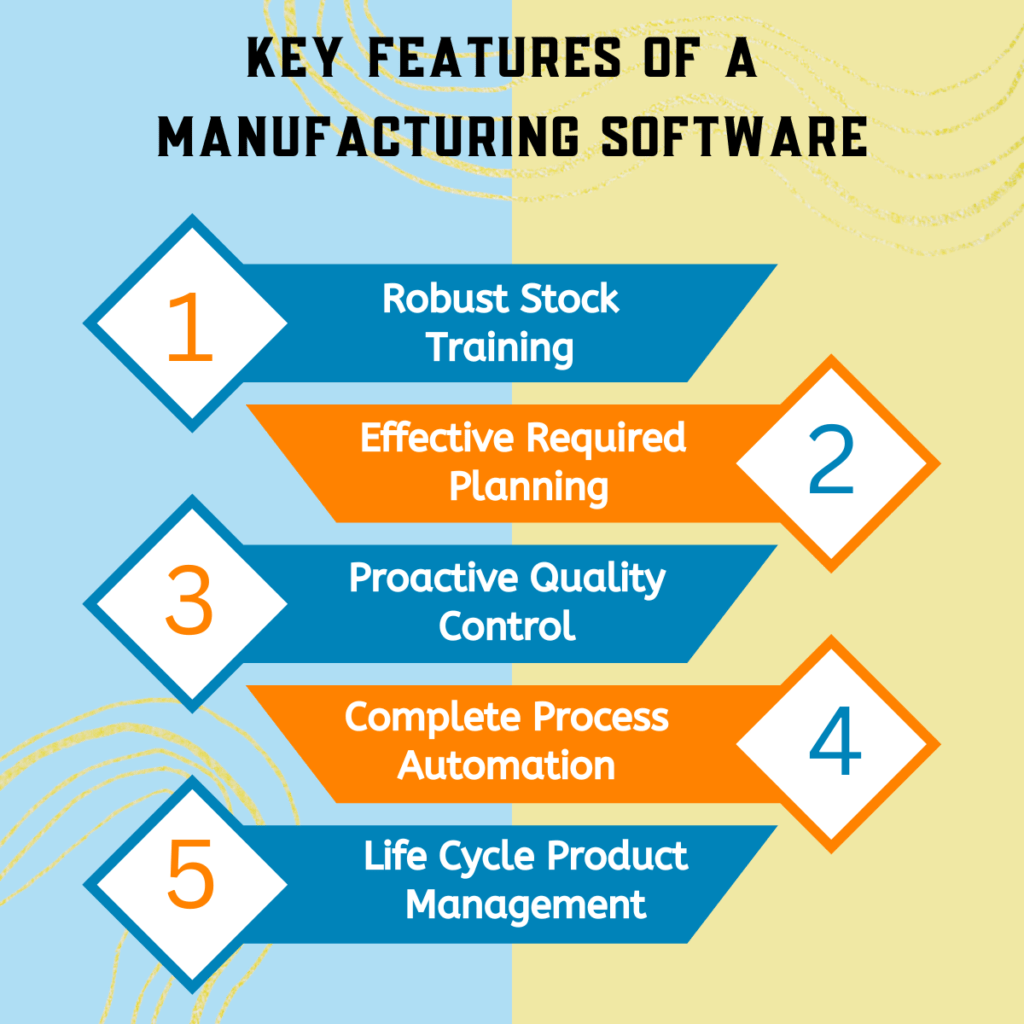An ERP for manufacturing industry, large or small, systems can benefit in a variety of ways. To make informed decisions at every stage, modern manufacturing industries must use solutions and tools that help them accelerate growth and establish a data-driven culture.
Given today’s hyper-connected and data-driven environment, the power of analytics and big data cannot be overlooked. By integrating various internal processes, ERP systems not only assist in enhancing production and distribution but also provide a 360-degree view of the entire business.
How does an ERP for manufacturing industry make sense?
Manufacturing today is much different than it was just a few years ago. Gone are the days of manufacturers being able to operate without computers, software, or Internet access. Today’s technologies allow manufacturers to optimize processes and streamline operations in ways that weren’t possible just a few years ago.
Manufacturing ERP software is an acronym for enterprise resource planning software. It’s a type of software that helps organizations manage all aspects of their business, including inventory management, production scheduling and accounting processes such as invoicing and payroll.
Many businesses implement an ERP system to help them achieve their goals and reduce expenses by cutting back on excess inventory and automating processes more efficiently. Read on for details about why manufacturing companies use ERP software, the benefits of implementing it, and how you can begin using it in your business.
Modules required in an ERP for Manufacturing Industry
Not every ERP system is designed to handle all industry operations. ERP modules with integrated functionality are crucial. As a manufacturer, you might need to manage multiple bills of materials (BOM), so you’ll need a special module that has this capability.
Here’s is the list of key modules for manufacturing ERP software:
Inventory Management
Compliance And Risk Management
Quality Control
Process Automation
Requirement Planning And Management
Distribution And Supply Chain Management
Asset Management
Finance And Accounting

How does SAP helps Manufacturing
SAP’s manufacturing ERP software has a plethora of functionality and was designed with manufacturers in mind. It provides additional capability and flexibility to business customers, regardless of industrial sectors, as a highly functioning ERP. Also the easy management of the supply chain is made possible by SAP installation in the industrial sector.
Benefits of using SAP Business One for Manufacturing Industry
Complete Control
Inventory accounts for a substantial portion of your spending, whether you are a small or large business. You must consequently maintain a fine line between inventory and production in order to satisfy client needs and make deliveries on schedule. All these inventory and production management needs will be satisfied by the SAP manufacturing software. It works as an integrated solution to manage inventories across many warehouses in various locations.
Enhances decision-making
The manufacturing sectors benefit from using SAP Business One by being able to examine and analyze all the data, including sales, performance, customers, profit, loss, finances, stocks, labor, and much more. Therefore industries may easily make judgments by looking at these factors. Industries may make informed decisions based on all this information that will ultimately benefit the company.
Interconnection of Sales and Inventory
Inventory management is critical for industrial organisations. Surely Knowing your stock, product status, raw material management, finished goods, purchase order monitoring, and general control are all part of inventory management. By integrating all sales orders to inventory data, the SAP manufacturing solution may help you to expedite the sales order process. SAP B1 also keeps track of the commodities that leave and enter your warehouses.
Advanced Reporting and Business Intelligence
The SAP Business One reporting module is very feature-rich and makes it simple for users to build reports on any of your business data. You can choose from a wide variety of built-in reporting templates to use right away or fast and easily modify reports to fit any circumstance you need to run the numbers on. Particularly for manufacturers, SAP B1 offers wide range of reports to satisfy all of your warehouse and inventory reporting requirements. It also features material planning forecasts, which enables you to foresee demand and modify the production or acquisition of goods.
Reduce Costs
SAP Business One decreases operation costs to assure profitability and also aids in lowering manufacturing costs. They also may assist the organisation in avoiding delays and interruptions, allowing for optimum outcomes and quick decisions. An increase in the number of business transactions and extensive use of Excel spreadsheets might lead to a lack of control over the information and a breakdown in the working environment.
Automated Process
Automation of routine tasks is made simpler by technology, which reduces the likelihood of human mistake while saving labor hours. Complete process automation is provided by manufacturing ERP, which combines a number of activities like sales, purchase records, stock, human resources, and others. By keeping track of all the data and controlling work orders, such as which includes the date and time of execution, client name, sales contracts, product amount, sales order, and delivery information SAP B1 automates the procedure.
Conclusion
Manufacturing industries must be adaptable since business conditions are continuously changing. Today’s successful methods and tactics could not be effective tomorrow. In order to operate a successful business & obtain a competitive advantage, manufacturing industries need to stay abreast of current technology. Manufacturing ERP software not only supports manufacturers’ agility, innovation, and efficiency, but it also enables companies to strategically react to both internal and external developments without fuss. The SAP Business One process manufacturing system has several advantages for the manufacturing industry. Manufacturing industries can benefit from this solution’s inventory control, shop-floor experience, and customer service.

